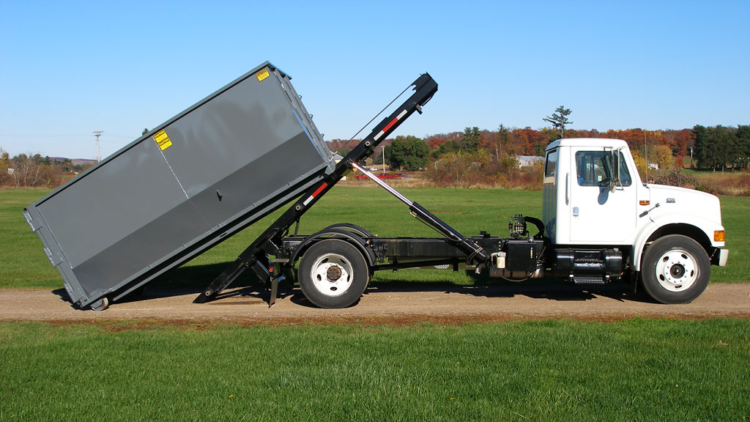how to start dumpster business

Starting a dumpster business can be a lucrative venture for those who are willing to put in the time and effort. Whether you’re looking to rent out dumpsters for construction sites or residential areas, there are several key factors to consider before getting started. In this article, we’ll take a closer look at the steps involved in starting your own dumpster business, from securing a dumpster to obtaining necessary permits and determining the right sizes for your customers’ needs. By following these guidelines, you’ll be well on your way to building a successful dumpster rental business that meets the needs of your local community.
Securing a Dumpster
One of the first steps in starting a dumpster business is securing a dumpster. There are several options available for obtaining a dumpster, including purchasing one outright or renting one from a waste management company.
If you decide to purchase a dumpster, it’s important to consider the size and type of materials you will be collecting. Dumpsters come in various sizes, ranging from 10 to 40 cubic yards, and can be made of steel or plastic. Steel dumpsters are more durable and can handle heavier loads, while plastic dumpsters are lighter and easier to move.
Renting a dumpster from a waste management company is another option. This can be beneficial for those who don’t want to invest in purchasing their own equipment or need access to multiple dumpsters of different sizes. When renting a dumpster, it’s important to research different companies and compare prices and services offered.
Overall, securing a dumpster is an essential step in starting your own dumpster business. It’s important to carefully consider your options and choose the best solution for your specific needs.
Permits and Other Legal Requirements
Before starting a dumpster business, it is important to understand the legal requirements and permits needed to operate in your area. The regulations for dumpster businesses vary depending on the state and city you are located in, so it is crucial to research and comply with all local laws.
One of the first steps in obtaining necessary permits is to contact your local government office or zoning board. They will be able to provide you with information on what permits are required for your specific location. Additionally, you may need to obtain a business license and register with the state.
It is also important to consider any environmental regulations that may apply to your dumpster business. This includes proper disposal of hazardous materials and adhering to recycling guidelines.
By taking the time to research and comply with all legal requirements, you can ensure that your dumpster business operates smoothly and avoids any potential legal issues down the line.
Renting or Buying a Dumpster
When it comes to starting a dumpster business, one of the most important decisions you’ll make is whether to rent or buy your dumpsters. Both options have their advantages and disadvantages, so it’s important to weigh them carefully before making a decision.
If you’re just starting out and don’t have a lot of capital to invest upfront, renting may be the best option for you. Renting allows you to get started quickly without having to make a large investment in equipment. Additionally, renting gives you flexibility in terms of the number and size of dumpsters you need. You can adjust your rental agreement as your business grows and your needs change.
On the other hand, if you have the capital available, buying your own dumpsters can be a smart long-term investment. Owning your own equipment means that you won’t have to worry about monthly rental fees eating into your profits. Additionally, owning your own dumpsters gives you more control over scheduling and maintenance.
Ultimately, whether you choose to rent or buy will depend on your specific business needs and financial situation. Be sure to do your research and consider all factors before making a decision.
Determining Dumpster Sizes
When starting a dumpster business, it’s important to determine the sizes of dumpsters you will offer. This decision will depend on the needs of your potential customers and the types of waste they will be disposing of.
Consider offering a range of sizes, from small 10-yard dumpsters for residential cleanouts to larger 40-yard dumpsters for construction sites or commercial projects. It’s also important to consider the weight limit of each dumpster size, as exceeding weight limits can result in additional fees or fines.
Additionally, make sure to educate your customers on how to properly fill the dumpster to maximize space and avoid overloading. By offering a variety of sizes and providing helpful tips, you can ensure that your customers have a positive experience with your dumpster rental service.
Scheduling Dumpster pickups
Once you have secured a dumpster and determined the appropriate size for your business needs, it is important to establish a regular schedule for dumpster pickups. This will ensure that your dumpster does not overflow with waste, which can lead to environmental and health hazards.
The frequency of your dumpster pickups will depend on the amount of waste generated by your business. If you are unsure about how often you should schedule pickups, consider monitoring the amount of waste produced over a period of time. This will give you an idea of how quickly your dumpster fills up and when it needs to be emptied.
It is also important to communicate with your waste management provider about any changes in your business operations that may affect the amount of waste generated. For example, if you are planning a large event or renovation project, you may need more frequent pickups during that time.
By establishing a regular schedule for dumpster pickups and communicating effectively with your waste management provider, you can ensure that your business operates in a safe and environmentally responsible manner.
Conclusion
In conclusion, starting a dumpster business can be a lucrative and rewarding venture if done correctly. It is important to secure the necessary permits and legal requirements before renting or buying a dumpster. Determining the appropriate size of the dumpster and scheduling regular pickups are also crucial for maintaining a successful business. With careful planning and attention to detail, anyone can start their own dumpster business and provide an essential service to their community while also earning a profit. Remember to always prioritize safety and compliance with regulations, and your dumpster business will thrive for years to come.
